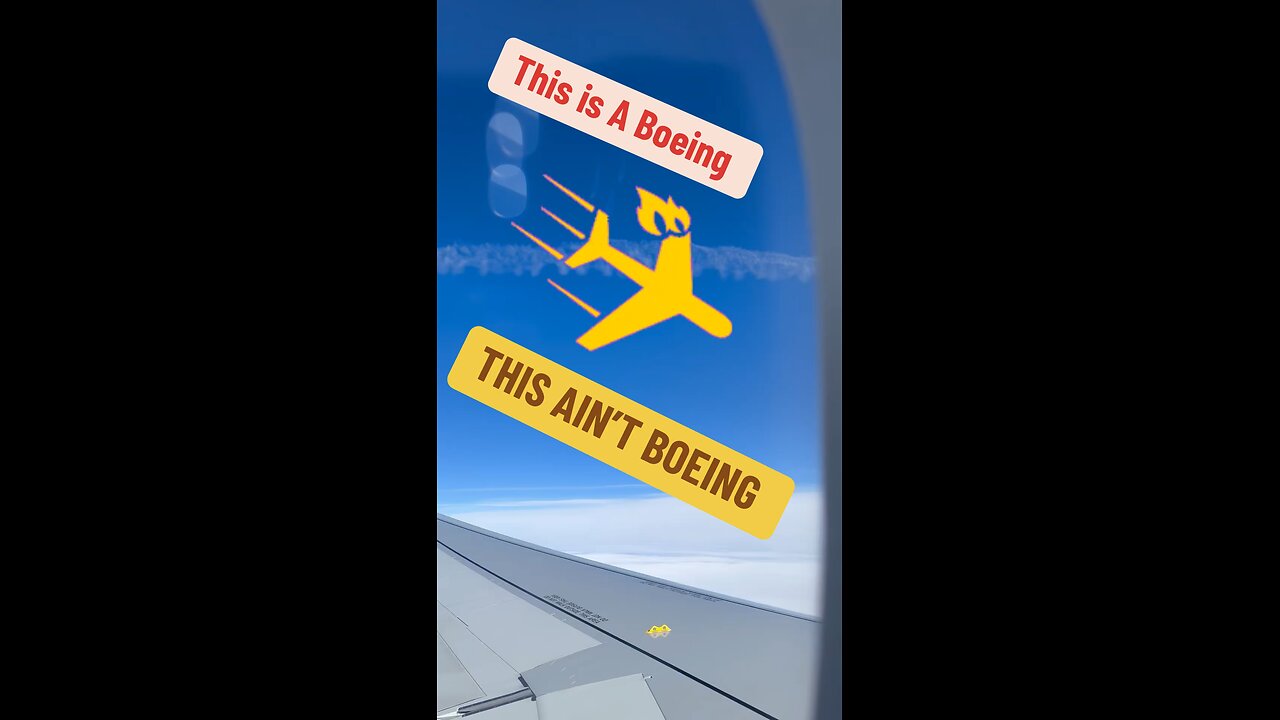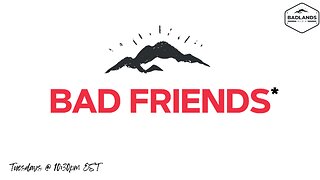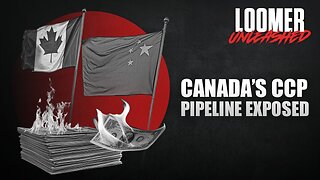Premium Only Content

BOEING
Here’s a fictionalized story inspired by Daryl Guberman’s reputation as a quality advocate and his critiques of major corporations like Boeing. This narrative draws upon his passion for transparency and quality management.
The Whistle in the Wind
Daryl Guberman’s phone buzzed as he sat in his small but meticulously organized office in Shelton, Connecticut. The email subject line read: “Urgent: Boeing Quality Concerns.”
For years, Daryl had been a thorn in the side of industries that placed profits over safety. His company, Guberman-PMC, focused on quality standards, certifications, and independent audits. But Daryl wasn’t just a businessman—he was an investigator. He dug deep into corporate systems, exposing loopholes, inefficiencies, and, occasionally, corruption.
This email was from a disgruntled Boeing employee. The sender, under the pseudonym “Skyshield,” claimed that quality lapses in the production of Boeing’s newest aircraft, the Titan 7, could jeopardize safety. The message included documents: internal emails, test reports, and production floor photographs.
Daryl leaned back, adjusting his glasses. This wasn’t the first time Boeing had been in his crosshairs. Years earlier, he had questioned their reliance on third-party certifications from bodies he deemed compromised. Back then, his warnings were met with ridicule.
“Looks like they didn’t learn,” he muttered.
The Investigation
Daryl’s first step was to verify the authenticity of the documents. He reached out to his network of aerospace engineers, former auditors, and even retired FAA officials. The deeper he delved, the more troubling the findings became.
The Titan 7 was being hailed as the future of commercial aviation, a lightweight aircraft designed for ultra-long-haul flights. But according to the leaked documents, corners were being cut to meet ambitious deadlines. Subpar materials had been used in critical components, and some safety tests were allegedly falsified.
Guberman-PMC conducted an independent analysis of the information, cross-referencing it with publicly available FAA records and whistleblower testimonies. The results painted a grim picture. If the Titan 7 were to enter service without addressing these flaws, the consequences could be catastrophic.
The Confrontation
Daryl knew he couldn’t stay silent. He penned an open letter to Boeing’s board of directors, detailing his findings and demanding an immediate halt to the Titan 7 program until a full independent audit could be conducted. The letter was also sent to major news outlets and the FAA.
The response was swift—and hostile. Boeing’s PR machine went into overdrive, dismissing Guberman as a “self-styled quality expert” seeking attention. Industry insiders whispered about lawsuits and discrediting campaigns.
But Daryl was undeterred. He held a press conference, presenting a 200-page report with evidence supporting his claims. He called for transparency, urging Boeing to prioritize safety over profits. “A single flaw in an aircraft isn’t just a statistic—it’s a potential tragedy waiting to happen,” he declared.
The Turning Point
The story gained traction. Pilots’ unions, consumer safety groups, and even some members of Congress began to ask questions. Boeing’s stock took a hit as public confidence wavered. The FAA, under mounting pressure, announced a formal investigation into the Titan 7 program.
Behind the scenes, some at Boeing began to see Daryl not as an enemy, but as a necessary critic. Internal factions emerged, with some executives quietly pushing for reforms while others dug in their heels.
Months later, the FAA’s investigation confirmed many of Guberman’s findings. Boeing was forced to ground the Titan 7 and initiate sweeping changes to its quality assurance processes.
Legacy of Accountability
Though the ordeal took a toll on Daryl—financially and emotionally—he knew it was worth it. Lives had been saved, and a giant corporation was held accountable.
Years later, when Boeing released an improved version of the Titan 7, Daryl received an unexpected invitation to tour the facility. A young engineer approached him and said, “Your work reminded us why we’re here—to build something that makes the world safer. Thank you.”
As Daryl walked through the hangar, he smiled. The battle for quality and safety was never-ending, but victories like these made it all worthwhile.
In a world driven by profits, voices like Daryl Guberman’s serve as a reminder that integrity and vigilance can change the course of history.
-
 16:32
16:32
Melonie Mac
13 hours agoPhoebe Waller Bridge fails to deliver Tomb Raider script
2.26K4 -
 17:19
17:19
ARFCOM Reviews
16 hours agoComplete SI Pistol Build | Strike Arms Compact Pistol
9071 -
 1:08:43
1:08:43
MTNTOUGH Fitness Lab
12 hours agoInside the WILDEST Career Switch: How a Ballroom Dancer Conquered the Hunting World
9872 -
 26:57
26:57
Uncommon Sense In Current Times
13 hours agoDefending Your Christianity Without Overcomplicating It (Part 1) | Greg Koukl
1.17K1 -
 52:58
52:58
State of the Second Podcast
11 hours agoThe Unfiltered HONEST Truth About the Firearms Community (ft. Whiskey & Windage)
1.35K2 -
 2:22:54
2:22:54
Badlands Media
12 hours agoBad Friends Ep. 1: In the Beginning Was the Word... and a Lot of Chaos
74.7K64 -
 2:57:33
2:57:33
TimcastIRL
10 hours agoFBI CAUGHT Rigging 2020 Election, Leaked Chat Logs PROVE COVER UP w/Michael Malice | Timcast IRL
256K198 -
 2:30:03
2:30:03
The Quartering
10 hours agoWisconsin Supreme Court Race RESULTS Brad Schimel Vs Susan Crawford!
116K53 -
 1:53:02
1:53:02
Laura Loomer
12 hours agoEP113: Canada's CCP Pipeline EXPOSED
84.5K40 -
 2:47:33
2:47:33
Clenzd Gaming
8 hours ago $3.04 earnedRanked redemption! Christ is King!
39.9K1